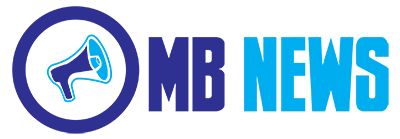Have you ever clicked on something and seen a web address ending in /portal.php? Maybe it popped up while logging in at school or connecting to Wi-Fi in a hotel. Sounds a bit mysterious, right? But don’t worry—this guide will explain what /portal.php means, why websites use it, and how it works—all in a simple way even kids can understand.
What Does /portal.php Mean?
Let’s break it down: the “/portal.php” part is what you see at the end of some web addresses (also called URLs). It usually looks like this:
arduino
CopyEdit
The word “portal” just means a door or gateway. And .php is a file type used by many websites to show information that can change based on what you’re doing, like logging in or checking messages.
So, /portal.php is like a special door that lets you enter a private part of a website. It’s not usually the homepage. It’s more like the dashboard behind the scenes—like your school login page, a hospital’s patient portal, or your company’s employee login screen.
Why Do Websites Use /portal.php?
Websites use /portal.php to keep things organized and safe. Imagine a huge school building. Not everyone can walk into the principal’s office, right? Only the people with the right key—or login—can go in.
In the same way, /portal.php is like a private digital hallway that leads to special content just for certain users. It helps:
- Keep personal info safe
- Show each person their own data (like your name or account)
- Offer custom tools depending on who logs in (like employee tools, student grades, etc.)
Without this kind of system, everyone would see the same thing and no one’s info would stay private.
Websites, especially ones for banks, schools, health services, or jobs, must protect your information. That’s why they create portals, and most of them are run by files like /portal.php.
Where Can You Find /portal.php?
You may not realize it, but /portal.php is used all over the internet—especially in places that ask you to log in. You’ve probably seen it if you’ve ever:

- Connected to public Wi-Fi at a hotel or airport
- Signed into your online school account
- Checked your schedule on a work dashboard
- Logged into a hospital or doctor’s patient portal
Here’s a cool trick: the next time you log in somewhere, look at the address bar. You might see something.com/portal.php. That’s your clue you’re using a secure login page or control panel made just for you.
Common Places You’ll See It
Some popular places where /portal.php appears include:
- School websites (student login or report cards)
- Healthcare portals (like MyChart)
- Business intranets (employee tools or HR systems)
- Hotel Wi-Fi sign-ins
- ISP portals (like Comcast or Spectrum)
- Gaming dashboards or game server logins
If you see /portal.php, that usually means you’re on a page with special access—not just a public homepage.
Is It Safe to Use /portal.php?
In most cases, yes—/portal.php is safe to use, especially if you’re on a trusted website. But here’s the rule: always check the address bar.
Make sure the website starts with https:// and not just http://. The “S” means secure. Also, check that the domain name is one you trust—like your school, hospital, or employer.
Bad people sometimes make fake portals to trick users into typing in their usernames and passwords. That’s why you should:
- Avoid clicking strange links in emails
- Never enter your info on a site that looks weird or unfamiliar
- Make sure the web address is correct
Do You Need a Password?
Yes, in almost every case, you’ll need a username and password to access /portal.php pages. That’s because these pages are designed to show private info. Just like a lock on a diary, you need a key to get in.
Some portals also use two-step login (like sending a code to your phone). That’s even safer. So don’t be surprised if a website asks for both a password and a code—they’re just protecting your info.
How Does /portal.php Work?
Let’s say you type in your login info on a /portal.php page. What happens next?
Here’s the simple version: PHP (the .php part) is a computer language that talks to a server—the computer that runs the website. When you log in, the server checks if your info is correct. If yes, it sends back a custom page just for you.
Think of it like this:
- You log in → the system checks your password → then shows your personal dashboard.
The cool part? Everything happens in just a few seconds. Behind the scenes, /portal.php connects you to a big database full of useful info—your grades, bills, appointments, files, or anything else the website stores for you.
Is /portal.php the Same Everywhere?
Not exactly. The name /portal.php might be the same, but the content inside is different depending on the website.
For example:
- On a school site, it might show your homework and grades
- On a hospital site, it might show your lab results or upcoming appointments
- On a business site, it might show your paychecks and work schedule
So even though the page is called /portal.php, what’s inside changes depending on who you are and which site you’re using.
Some websites even rename the page to things like login.php, dashboard.php, or userportal.php, but they all do similar things.
Cool Things You Can Do on a /portal.php Page
You might think it’s just a boring login screen, but /portal.php pages can be pretty powerful. Once you’re inside, they let you do all kinds of things that you can’t do on the public part of the website.

Check Messages or Notifications
Some portals have their own message system. You can see notes from your teacher, updates from your boss, or alerts from your doctor. It’s like having a private mailbox just for that site.
Update Your Profile or Settings
Most portals let you change your password, update your phone number, or fix your email address. That way, the website always has the latest info about you. Some even let you upload photos or choose how you get alerts (like email or text).
Can Kids Use /portal.php?
Absolutely—as long as they have permission. Many schools have portals where kids can:
- Check homework
- See grades
- Chat with teachers
- Join online classes
Parents may also use parent portals to track their child’s progress or attendance. Just remember: kids should always use a portal under adult supervision and never share their password with friends.
Tips to Stay Safe While Using /portal.php
Even though /portal.php pages are usually safe, it’s super important to use them wisely. Here’s how:
- Always log out when you’re done (especially on shared computers)
- Use a strong password—mix letters, numbers, and symbols
- Don’t share your login info with anyone
- If something looks strange or you get an error, tell a trusted adult or IT support
And one more thing—don’t reuse the same password on every website. If one gets hacked, the others might be in danger too.
The Bottom Line
/portal.php is like a secret door to a personal part of a website. You’ll find it on school pages, hospital systems, job dashboards, and even hotel Wi-Fi sign-ins. It’s totally normal, totally safe (on trusted sites), and super helpful.
Just remember:
- “Portal” = private door
- “.php” = the engine that powers the page
- You usually need a login to access it
- It helps websites keep your stuff private and organized
So the next time you see /portal.php in the address bar, you’ll know exactly what it is—and how to use it like a pro. Whether you’re checking your grades, logging in for work, or seeing your doctor’s notes, now you’re ready to handle it with confidence.


